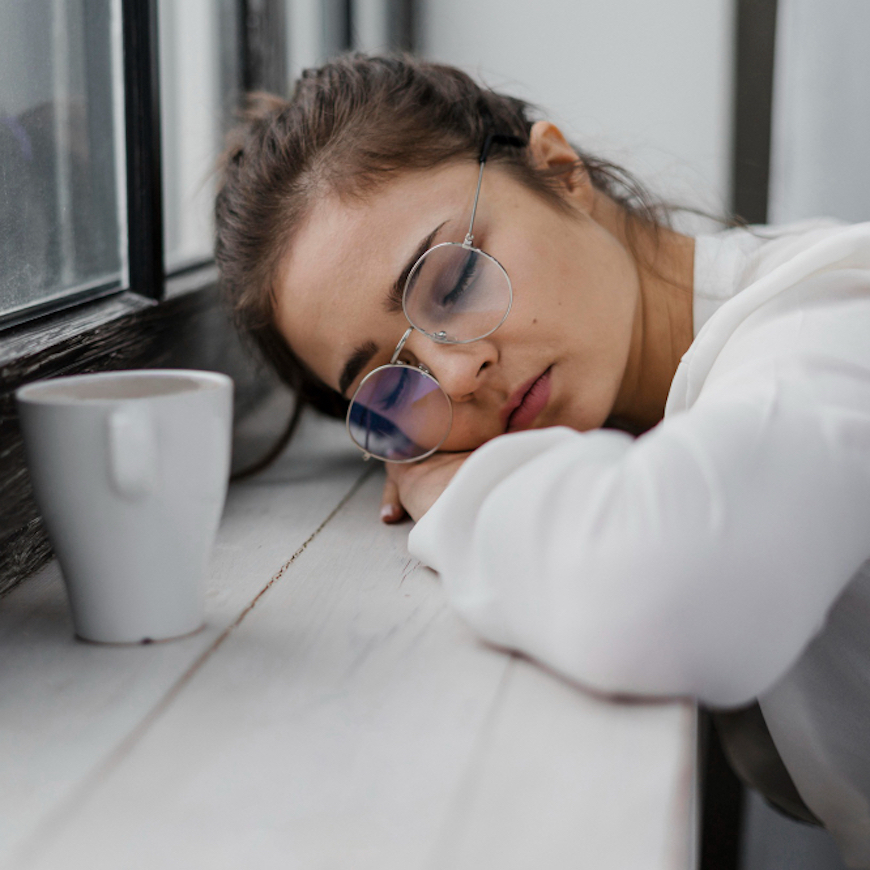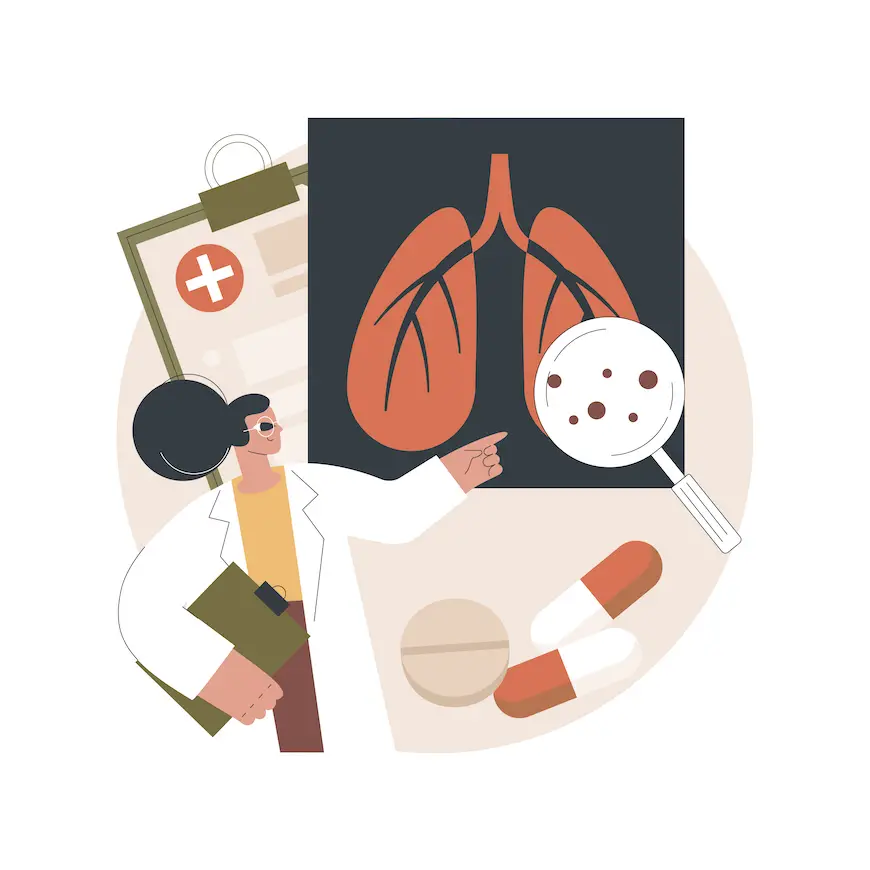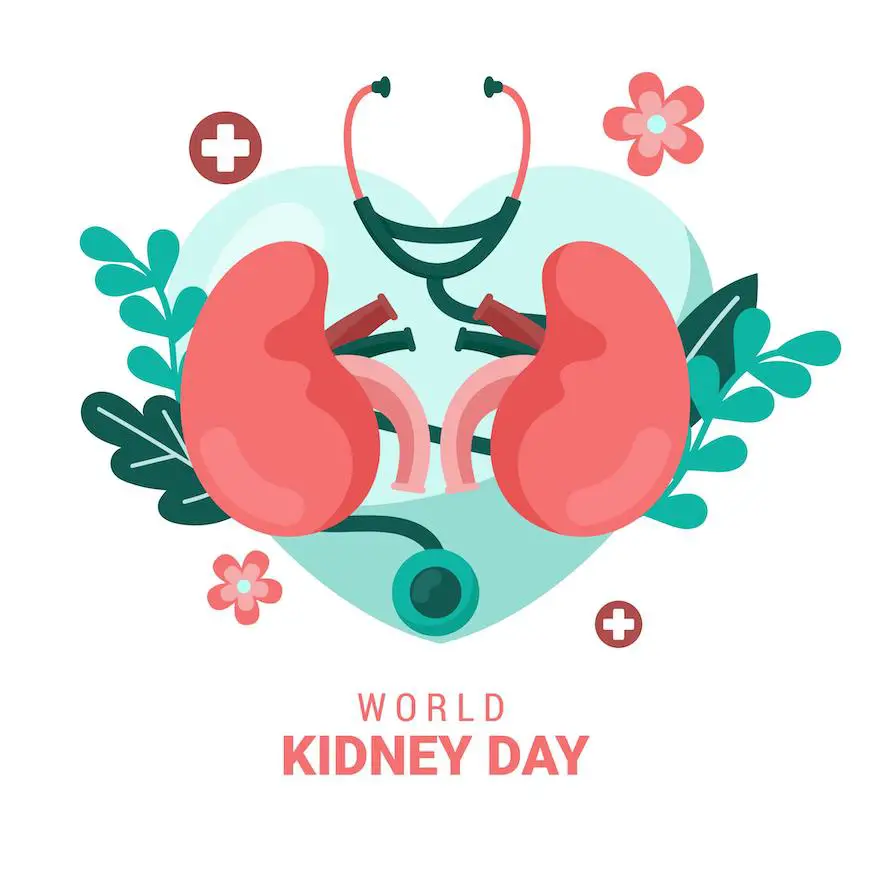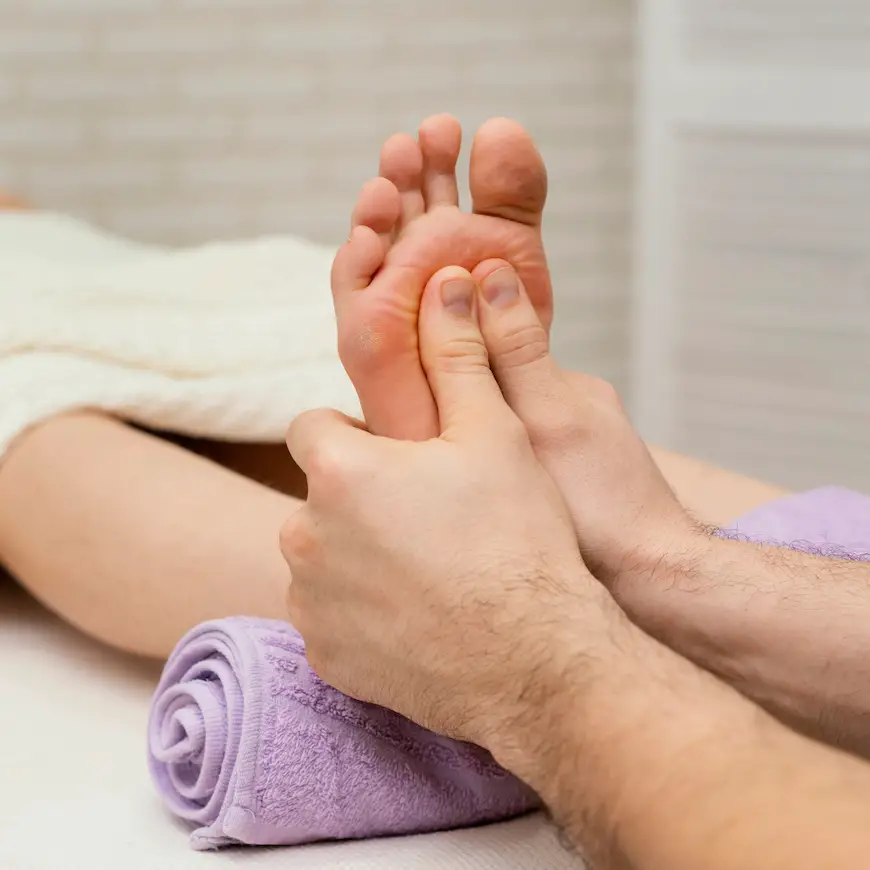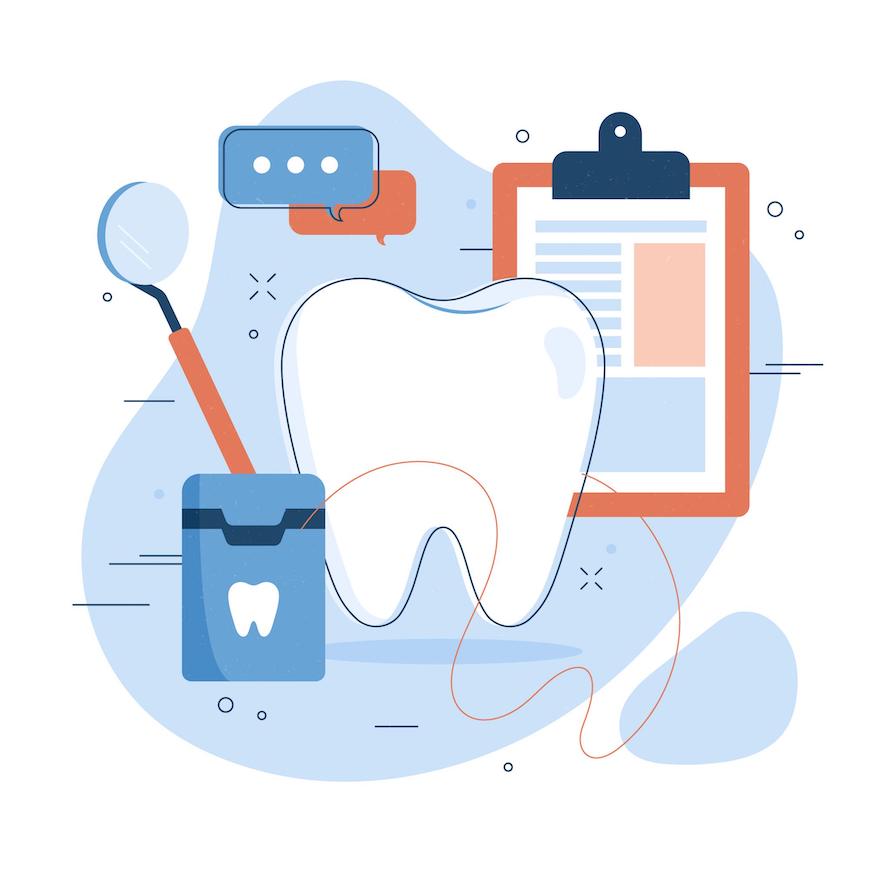What is narcolepsy?
Narcolepsy is a chronic sleep disorder that disrupts the brain’s ability to regulate the body’s sleep-wake cycle. This is often referred to as a neurological disorder, but it can affect other parts of the body, limiting your ability to function normally.
Narcolepsy is characterized by excessive daytime sleepiness or sudden weakness of the muscles (called cataplexy). There is no cure for narcolepsy, but some symptoms can be managed with different treatments. There are 2 types of Narcolepsy:
- Type 1 Narcolepsy (Narcolepsy with Cataplexy): This type involves excessive daytime sleepiness and sudden loss of muscle tone (cataplexy) triggered by strong emotions like laughter or surprise, often linked to low levels of hypocretin, a brain chemical that regulates wakefulness and REM sleep.
- Type 2 Narcolepsy (Narcolepsy without Cataplexy): It is characterized by excessive daytime sleepiness but without cataplexy. Hypocretin levels are typically normal, and the exact cause is less well understood compared to Type 1.
Narcolepsy symptoms
Narcolepsy is a chronic sleep disorder characterized by an inability to regulate sleep-wake cycles normally. While individuals with narcolepsy may experience a combination of symptoms, not everyone will have all of them, and the severity can vary from person to person. Below are the common symptoms associated with narcolepsy:
- Excessive Daytime Sleepiness (EDS): A persistent and overwhelming need to sleep during the day, often leading to unintended naps or dozing off in inappropriate situations.
- Cataplexy (Type 1 only): Sudden, brief episodes of muscle weakness triggered by strong emotions such as laughter, anger, or excitement.
- Sleep Paralysis: Temporary inability to move or speak when falling asleep or waking up, often causing feelings of fear or distress.
- Hallucinations: Vivid, often frightening visual or auditory experiences that occur at the boundary of wakefulness and sleep (hypnagogic or hypnopompic).
- Disturbed Nighttime Sleep: Fragmented sleep patterns with frequent awakenings during the night, despite the excessive daytime sleepiness.
Narcolepsy treatment includes medication, such as stimulants, or sodium oxybate, and lifestyle changes, such as avoiding caffeine in the evening or taking a nap. These options are explained below.
Narcolepsy Treatment
While there is no cure for narcolepsy, symptoms can be effectively managed with the right combination of medications and lifestyle adjustments.
Narcolepsy Treatment by Medications
Narcolepsy treatment includes medication, such as:
1- Stimulants
Stimulants are used to help people with narcolepsy stay awake during the day. First-line stimulants include modafinil or armodafinil. These drugs work by increasing consciousness. However, this drug can produce side effects such as headache and nausea.
Stimulants work by increasing dopamine levels (it is a neurotransmitter that plays a key role in the brain’s reward and pleasure centers. By raising dopamine levels, stimulants enhance wakefulness, attention, and focus), and enhancing norepinephrine activity which increases arousal and alertness.
The US Food and Drug Administration (FDA) approved pitolisant and solriamfetol for the treatment of narcolepsy. Both have been proven to reduce excessive daytime sleepiness and have similar benefits and side effects to the above drugs.
Modafinil, pitolisen, and armodafinil help with hormonal birth control. Additionally, in some cases, a healthcare provider may prescribe methylphenidate (such as Ritalin) to treat narcolepsy. However, these drugs can produce side effects such as anger and anxiety.
2- Antidepressants
Antidepressants can be effective in treating certain symptoms of narcolepsy, particularly cataplexy, sleep paralysis, and hypnagogic hallucinations. These symptoms are related to disruptions in REM (rapid eye movement) sleep, which is the phase of sleep associated with vivid dreaming and muscle atonia (paralysis). In narcolepsy, REM sleep can occur during waking hours, leading to these symptoms.
Antidepressants primarily affect the levels of neurotransmitters like serotonin, norepinephrine, and dopamine in the brain. By altering the activity of these neurotransmitters, antidepressants can help regulate abnormal REM sleep patterns, reducing symptoms that are associated with it.
Side effects may include nausea, weight gain, and vomiting. If you experience any side effects from your medication, talk to your healthcare provider about changing your medication.
3- Sodium Oxybate
Sodium oxybate, marketed under the brand name Xyrem, is a medication specifically approved for the treatment of cataplexy and excessive daytime sleepiness (EDS) in people with narcolepsy. It is one of the most effective narcolepsy treatment for controlling the symptoms of cataplexy, and it also helps improve the quality of nighttime sleep.
Unlike other narcolepsy medications, sodium oxybate is a sleep aid designed to promote deep sleep at night. Sodium oxybate is an FDA-approved treatment that only lasts a few hours, so people wake up in the middle of the night and take a second dose.
Health care providers usually start patients with a low dose at first and increase the dose as needed. Daytime sleepiness and cataplexy improve after taking sodium oxybate for several weeks.
In addition, sodium oxybate can cause side effects such as stomach or back pain, dizziness and sweating. If these or other side effects do not go away or are severe, see your healthcare provider.
Narcolepsy Treatment by Changing Lifestyle
Narcolepsy treatment includes lifestyle changes, such as:
1- Afternoon Caffeine Avoidance
Avoiding caffeine in the afternoon is a key lifestyle adjustment that can significantly help people with narcolepsy manage their symptoms. Narcolepsy affects the brain’s ability to regulate sleep-wake cycles, often causing excessive daytime sleepiness (EDS) and disrupted nighttime sleep.
People with narcolepsy drink coffee to try to wake up during the day. However, consuming caffeine late in the evening can make it more difficult to fall asleep.
You may be more likely to fall asleep—a common symptom of narcolepsy. Other things to avoid are drinking alcohol and smoking a few hours before bed.
2- Short Naps
Short naps are a crucial part of narcolepsy treatment and can help manage excessive daytime sleepiness (EDS) in people with narcolepsy. These naps can help restore alertness and improve focus without interfering with nighttime sleep.
If possible, taking frequent naps is the best way to manage the symptoms of narcolepsy. Short, scheduled naps (about 10 to 30 minutes) can be very helpful when a person falls asleep.
3- Regular Exercise
Regular exercise plays an important role in managing narcolepsy symptoms, improving overall health, and boosting well-being. While exercise won’t cure narcolepsy, it can help alleviate some of the related symptoms, such as fatigue, sleep disruptions, and mood issues.
Researchers studied the effect of cardiovascular health (related to the heart or lungs) in people narcolepsy. Also, while regular exercise is beneficial, the timing of the exercise is also important. Do it a few hours before bed to avoid disturbing sleep.
Regular exercise, in combination with medical narcolepsy treatment and good sleep habits, can significantly improve the quality of life for individuals with narcolepsy.
What lifestyle changes have you found most helpful in managing your narcolepsy symptoms alongside medical treatment?
Conclusion
Narcolepsy is a complex sleep disorder that can significantly impact daily life, presenting symptoms such as excessive daytime sleepiness, cataplexy, sleep paralysis, and hallucinations. Understanding the differences between the two types of narcolepsy—Type 1 and Type 2—along with their symptoms and available treatments, is key to managing the condition effectively.
Narcolepsy treatment includes medications like stimulants to reduce daytime sleepiness and antidepressants to manage cataplexy and hallucinations. Lifestyle changes, such as maintaining a regular sleep schedule and incorporating planned naps, also help alleviate symptoms. While narcolepsy is not curable, these strategies can greatly improve quality of life.
You may wonder, Is narcolepsy a disability? In many cases, it is recognized as a disability, especially if symptoms severely interfere with work or daily activities. This designation can help individuals access accommodations and support. Similarly, it’s important to distinguish narcolepsy from sleep apnea, as both are sleep disorders with overlapping symptoms, like daytime fatigue, but require different diagnostic methods and treatments.
If you or someone you know experiences symptoms of narcolepsy, seek professional help to obtain an accurate diagnosis and tailored treatment plan. Taking the first step towards understanding narcolepsy is essential for improved health and well-being.
Frequently Asked Questions
